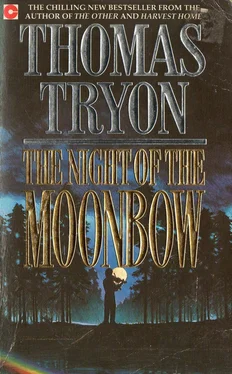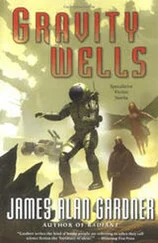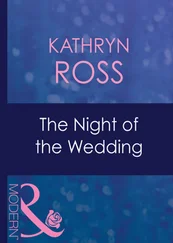Thomas Tryon - The Night of the Moonbow
Здесь есть возможность читать онлайн «Thomas Tryon - The Night of the Moonbow» весь текст электронной книги совершенно бесплатно (целиком полную версию без сокращений). В некоторых случаях можно слушать аудио, скачать через торрент в формате fb2 и присутствует краткое содержание. Жанр: Триллер, на английском языке. Описание произведения, (предисловие) а так же отзывы посетителей доступны на портале библиотеки ЛибКат.
- Название:The Night of the Moonbow
- Автор:
- Жанр:
- Год:неизвестен
- ISBN:нет данных
- Рейтинг книги:3 / 5. Голосов: 1
-
Избранное:Добавить в избранное
- Отзывы:
-
Ваша оценка:
- 60
- 1
- 2
- 3
- 4
- 5
The Night of the Moonbow: краткое содержание, описание и аннотация
Предлагаем к чтению аннотацию, описание, краткое содержание или предисловие (зависит от того, что написал сам автор книги «The Night of the Moonbow»). Если вы не нашли необходимую информацию о книге — напишите в комментариях, мы постараемся отыскать её.
The Night of the Moonbow — читать онлайн бесплатно полную книгу (весь текст) целиком
Ниже представлен текст книги, разбитый по страницам. Система сохранения места последней прочитанной страницы, позволяет с удобством читать онлайн бесплатно книгу «The Night of the Moonbow», без необходимости каждый раз заново искать на чём Вы остановились. Поставьте закладку, и сможете в любой момент перейти на страницу, на которой закончили чтение.
Интервал:
Закладка:
“Shape up, Wacko,” they were saying. “Remember Stanley Wagner.”
Resolved to heed the silent warning, Leo shut his own eyes and tried to get some sleep. But sleep would not come that night, and he lay long awake, thinking about the luckless Stanley, who might have had bad dreams too, and about his sudden, mysterious departure. Leo decided he didn’t want to know too much about Stanley.
Ma Starbuck, seated with her ear as close to Pa’s static-riddled Atwater-Kent radio speaker as her bulk would allow, nodded emphatically. As usual, “Ma Perkins” was right. If Lauralee, a “modern” housewife, really wanted to hold on to her mate, Buzz Morgan – a “real good” garage mechanic who tuned up engines over at Zeke’s Service Station – she was just going to have to quit flirting with every Tom, Dick, and Harry who happened by.
“Ma Perkins” was a latter-day oracle in the Starbuck household, and no matter how busy she was, Ma stopped what she was doing to catch the quarter-hour broadcast, which just now vied with the whirr and clatter of the antiquated Gestetner machine grinding out The Pine Cone. Ma was used to doing several things at once (there was a brace of apple pies cooling on the shelf outside her kitchen window), but “Ma Perkins” was too good to miss, and not until Lauralee had agreed to watch her step (though she sure would like to “get outta this burg and see some city lights”) did Ma return to her typewriter, set up by the window so she could keep an eye on the compound formed by three facades – barn, store, and office – that was the hub of the upper camp.
Across the way in the barn, morning crafts session was in full swing. One of the oldest in the district, the barn was well suited to its current purpose, its old stalls, tackrooms, and lofts having been readily transformed into workrooms – the Marconi Radio Shop (in the hayloft), the Swoboda Wood-Carving Shop, the Rembrandt Paint Shop, the Silas Marner Weaving Shop, the Paul Revere Metalworking Shop – and on any morning except Sunday the place rang to the din of ball-peen hammers on sheet copper and saws eating wood, to the ceaseless hum of voices as young craftsmen went about the business of creating a work of art, this summer under the gentle guidance of Fritz Auerbach.
From time to time one of the boys would lay down his tools and come out to the pump for a cooling drink or to make a purchase at the Coop (stopping by the office first to get the money from his spending envelope). The Coop had once been exactly what its name implied, a chicken coop housing a flock of Rhode Island Reds, from which, in the camp’s earlier years, Ma had extracted her nickle of “egg money.” Nowadays, for two hours every morning and another in the evening, from behind its full-length oilcloth-covered counter, the counselors took turns vending materials for leather craft, beadwork, woodburning, and other handicraft projects, as well as candy bars and soda pop kept chilled in an old cold box upon which the legend MOXIE had all but worn away.
Now, through the window of the barn that marked the Swoboda Wood-Carving Shop, Ma glimpsed the feathered Tyrolean cap belonging to Fritz Auerbach. He was hard at work on his pet project, a scale model of a village in Austria called Durenstein, which, when completed, was intended as a special gift for Camp Friend-Indeed.
“Hi, Fritz,” she called. “How’s it going with all the little folk?”
Fritz put his head out the window and laughed. “No little folk today, Mrs Starbuck, only little houses.”
“I thought you was gonna call me Ma, like everybody else at camp.”
“Okay, Ma, you’re the boss.” He tipped his hat brim over his eye and withdrew, catching his feather in a knothole. Ma beamed approvingly. She liked Fritz; everyone did.
Though he supervised all arts-and-crafts activities, the Swoboda Wood-Carving Shop was Fritz’s personal duchy. Here he had set himself up with a sturdy workbench, a vise, chisels, knives, scroll saws, and other wood-working tools, and the adjacent walls were hung with tiny figures, human and animal, cleverly carved from chunks of wood and destined for the village: bushy-tailed squirrels, a tortoise, a deer, a man in lederhosen and a feathered cap. For Fritz was a master woodworker, and the Swoboda corner had become extremely popular with many of the campers, from the older boys in High Endeavor, eager to learn his carving secrets, to the cadets from Virtue like Peewee Oliphant, who crowded around him as he perched on his stool amid the aromatic sawdust and wood shavings.
Durenstein, the village on the outskirts of Vienna, was a place Fritz knew well – a little corner of his childhood that held many happy memories, unclouded by the misfortunes that had befallen him since. Sometimes, as he worked, he would tell the campers stories about how on Sundays in springtime he and his family would drive out of the city in their big touring car to take lunch under the arbor at a little cafe where the hasenpfeffer was tasty and they would drink May wine with strawberries in each glass and afterward sing the old German songs.
But no more. Fritz did not care to hear those songs any longer. It saddened Ma, for it didn’t seem likely he would ever see his family again – at Durenstein, or anywhere else. The Auerbachs had been one of the oldest and most respected banking families in Vienna; since the Austrian Nazis began their bid for power they had coveted the fortune of the family of Jews, and one night – this was some months before the Anschluss, when Hitler’s panzer units had rolled across the border into Austria -the Brownshirts had descended on the Auerbach house, breaking in at the front while the family escaped through the alley with only the clothes on their backs and a few bits of jewelry. Fritz, who had been away at school in Geneva, was sure his father would try to reach New York, and had himself made his way to America to wait, boarding with a family in Middletown and earning his tuition at Wesleyan by private tutoring in the German language. Among those he had taught had been Rex Kenniston’s younger brother, and it had been on Rex’s recommendation that Fritz, though a Jew, had been offered the post at Camp Friend-Indeed.
The results, Ma decided, had been gratifying. For Fritz, who had the most reason for complaint of all the young men on Pa’s staff, gave the impression of being the most content, and was the most easygoing and pleasant to be around, doing his utmost to hide the anguish that had already touched his dark, curly hair with silver. He was also – as Ma’s friend Dagmar Kronborg had pointed out with satisfaction – responsible for bringing to Friend-Indeed something of the “culture” the boys had encountered heretofore only on occasional visits to the Castle. Indeed, he had turned the so-called White House, the small cottage of which he was sole tenant, into the acknowledged cultural hub of the entire camp.
Ma smiled to herself. Being a “cultural hub” suited the little house, she thought, picturing it set in the grove of slender birches: the low, narrow doorway elegantly fronted by a sliver of porch, with its decorative bits of curlicue and filigree, and boasting a pair of Doric columns that had once framed the doorway of a building in Junction City. The tiny one-room “playhouse” Pa had contrived with Henry Ives in order to keep Ma close to him in that long-ago time when love was fresh had in recent years been the residence of Hap Holliday, who had been far from pleased at being relegated for the season to a bunk at Bachelors’ Haven, the staff dorm. But Ma had made up her mind as soon as she heard Fritz’s tragic story from Dr Dunbar. “That boy’ll need a home,” she had told Pa, “a place where he can be alone.” And when Fritz had moved into the cottage with his meager possessions – the few treasures he’d brought with him from Switzerland (an antique chess set, an album of stamps, and a pewter-lidded stein reputed to have come from “King Ludwig’s castle at Neuschwanstein”), a small shelf of books, and a collection of classical and jazz recordings that he played on an old Victrola he’d picked up in a Junction City secondhand shop – she knew she’d done the right thing. Besides, lately Fritz was proving an agreeable companion for Leo Joaquim, giving him a game of checkers and lending him books. A well-educated, cultured person like Fritz was bound to have an effect on the poor orphan, might even influence his entire future, help to mold him into the sort of person Ma believed him capable of becoming. “Glad Men from Happy Boys,” wasn’t that the Moonbow motto, Pa’s favorite slogan?
Читать дальшеИнтервал:
Закладка:
Похожие книги на «The Night of the Moonbow»
Представляем Вашему вниманию похожие книги на «The Night of the Moonbow» списком для выбора. Мы отобрали схожую по названию и смыслу литературу в надежде предоставить читателям больше вариантов отыскать новые, интересные, ещё непрочитанные произведения.
Обсуждение, отзывы о книге «The Night of the Moonbow» и просто собственные мнения читателей. Оставьте ваши комментарии, напишите, что Вы думаете о произведении, его смысле или главных героях. Укажите что конкретно понравилось, а что нет, и почему Вы так считаете.












